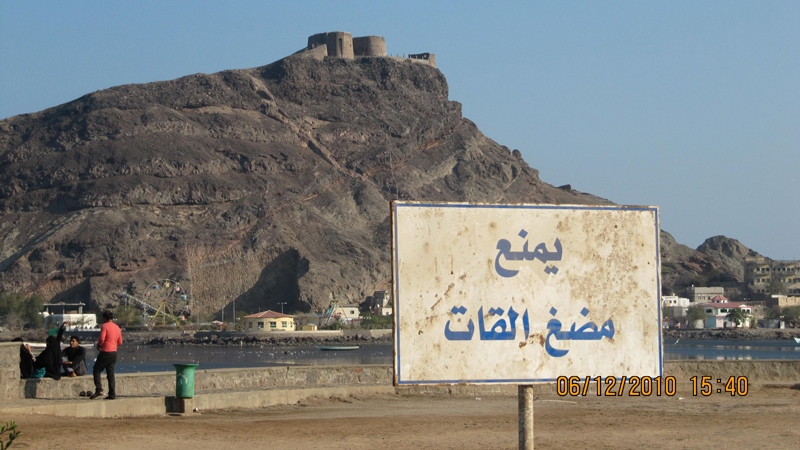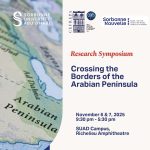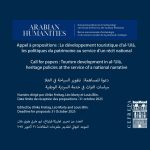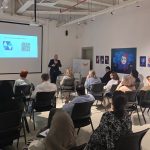AXIS IV
Axis IV
Knowledge, Heritage and Identity in the Arabian Peninsula.
At the crossroads of archeology and anthropology, of history and memory, of the past and the present, heritage has for some years become a fundamental issue in the countries of the Arabian Peninsula where many historical periods are now more and more known thanks to the accumulation of knowledge on the civilizations of the Nabataeans, Dilmun or Sabaeans.
At the same time, several countries have seen the birth of gigantic urban projects which have imposed a new pace of development, a particular way of organizing space, and an economy based on the enhancement of heritage and its integration into cultural, social and economic processes. Such transformations are visible in the role played by museums in these new dynamics (Louvre Museum in Abu Dhabi, National Museum of Bahrain, National Museum of Oman, Museum of Islamic Art in Doha), as well as in the many projects to safeguard heritage threatened with disappearance, particularly in war or conflict zones (Yemen).
A real object is now available to be thought about and questioned from the point of view of the human and social sciences: how are sustainable development or ecological city projects articulated with the visions of the economy in the Gulf countries and the obligation to think about the post-oil era? How are the architectural, aesthetic and urban modernity implemented by the various projects launched in Saudi Arabia, the United Arab Emirates or Qatar? What are the development paradigms that could emerge from the study of the articulation of the different economic, social and cultural spheres?
Axis IV of the research conducted within CEFREPA nourishes the ambition to answer these questions by giving a clear idea of the heritage policies carried out in the different countries of the region, their intellectual foundations and their implementations and achievements. It also aims to show the issues of memory and identity that the question of heritage conceals, in a region that is often reduced to religious and denominational labels. Is heritage not at the heart of a historical turning point that is taking place in an underground but truly effective way, so much does it involve a redefinition of identity and memory, of the past and the present?
Axis IV of the research conducted within CEFREPA nourishes the ambition to answer these questions by giving a clear idea of the heritage policies carried out in the different countries of the region, their intellectual foundations and their implementations and achievements. It also aims to show the issues of memory and identity that the question of heritage conceals, in a region that is often reduced to religious and denominational labels. Is heritage not at the heart of a historical turning point that is taking place in an underground but truly effective way, so much does it involve a redefinition of identity and memory, of the past and the present?
I. Heritage policies between memories and identities
Based on the state of the art and on specific examples, the aim of this first research component is to explore the forms of awareness of the interest of heritage in all its forms, material and immaterial, ancient or medieval, in the countries of the Arabian Peninsula. Heritage is used to promote the values carried by the cultures that have succeeded each other in a given territory. Its preservation also conceals a gesture of safeguarding the values of peoples, their ways of representing life, of conceiving beauty or of mobilizing intelligence. This first sub-section also plans to explore the uses of the concept of sustainable development within the literature produced in the countries of the Arabian Peninsula, and the way in which it is articulated with the preservation of heritage, inserted in the strategic visions of the evolution of societies, or applied to the transformations undergone by urban space.
If heritage can be the marker of a particular culture or the illustration of a unique civilization, it can also bear witness to the dissemination of cultural models shared by several peoples and territories at a given moment in history. This dissemination opens onto the notion of interculturality which is useful for reflecting on the evolution of techniques, modes of production, rites and beliefs, even the organization of social and political space. Hence the importance of taking heritage into account in both its identity and memory dimensions. The intercultural space fits into the interstices of this double challenge, that of preserving one’s own history irreducible to other peoples, and that of reciprocal influences, borrowings or dissemination of models commonly shared by several groups.
Among the flagship projects under this component, mention should be made of the setting up, by Fatima Al-Baydani, of a collection of recordings, the result of a quarter of a century of collecting the oral literary heritage of Yemen, which also counts stories, nursery rhymes, poems, songs, proverbs, dances and games from all regions of the country. The whole is the subject of an ongoing publication on popular Yemeni oral heritage.
Based on the state of the art and on specific examples, the aim of this first research component is to explore the forms of awareness of the interest of heritage in all its forms, material and immaterial, ancient or medieval, in the countries of the Arabian Peninsula. Heritage is used to promote the values carried by the cultures that have succeeded each other in a given territory. Its preservation also conceals a gesture of safeguarding the values of peoples, their ways of representing life, of conceiving beauty or of mobilizing intelligence. This first sub-section also plans to explore the uses of the concept of sustainable development within the literature produced in the countries of the Arabian Peninsula, and the way in which it is articulated with the preservation of heritage, inserted in the strategic visions of the evolution of societies, or applied to the transformations undergone by urban space.
If heritage can be the marker of a particular culture or the illustration of a unique civilization, it can also bear witness to the dissemination of cultural models shared by several peoples and territories at a given moment in history. This dissemination opens onto the notion of interculturality which is useful for reflecting on the evolution of techniques, modes of production, rites and beliefs, even the organization of social and political space. Hence the importance of taking heritage into account in both its identity and memory dimensions. The intercultural space fits into the interstices of this double challenge, that of preserving one’s own history irreducible to other peoples, and that of reciprocal influences, borrowings or dissemination of models commonly shared by several groups.
Among the flagship projects under this component, mention should be made of the setting up, by Fatima Al-Baydani, of a collection of recordings, the result of a quarter of a century of collecting the oral literary heritage of Yemen, which also counts stories, nursery rhymes, poems, songs, proverbs, dances and games from all regions of the country. The whole is the subject of an ongoing publication on popular Yemeni oral heritage.
II- Studies of Arabic manuscripts: digital humanities, editions and translations
In connection with the libraries of the countries of the Arabian Peninsula, CEFREPA has the ambition to initiate a systematic work of cataloging manuscripts from the medieval period, their digitization and the dissemination of the knowledge they contain through editions reviews and translations in French and English.
Some work relating to the study of the textual heritage of the countries of the Arabian Peninsula has already been undertaken, as evidenced in particular by the HUNAI project led by Éric Vallet (University of Strasbourg) and whose aim is to form a coherent corpus of major works from the abundant textual production of premodern Arabia, and to integrate it into all the Arabic digital resources available in Open Access, in addition to developing historical and linguistic studies and analyzes based on textual data mining applied to coherent corpora resulting from this production. The first stage of this project was launched in June 2022-November 2023, with the objective of establishing a pilot corpus on Rasûlid historiography (626-858/1229-1454).
Other projects dedicated to the formation of electronic corpora on the Mirrors of Princes or the art of Furûsiyya have been undertaken by other CEFREPA researchers, in collaboration with institutions and national libraries in the countries of the Arabian Peninsula. They aim to enhance this textual heritage by relying on a thematically homogeneous corpus and making it possible to exploit textual data with a view to studying the evolution of a political genre (equestrian art, the art of war, government treaties) or to probe the establishment and development of the major concepts of Arab-Muslim political thought.
In connection with the libraries of the countries of the Arabian Peninsula, CEFREPA has the ambition to initiate a systematic work of cataloging manuscripts from the medieval period, their digitization and the dissemination of the knowledge they contain through editions reviews and translations in French and English.
Some work relating to the study of the textual heritage of the countries of the Arabian Peninsula has already been undertaken, as evidenced in particular by the HUNAI project led by Éric Vallet (University of Strasbourg) and whose aim is to form a coherent corpus of major works from the abundant textual production of premodern Arabia, and to integrate it into all the Arabic digital resources available in Open Access, in addition to developing historical and linguistic studies and analyzes based on textual data mining applied to coherent corpora resulting from this production. The first stage of this project was launched in June 2022-November 2023, with the objective of establishing a pilot corpus on Rasûlid historiography (626-858/1229-1454).
Other projects dedicated to the formation of electronic corpora on the Mirrors of Princes or the art of Furûsiyya have been undertaken by other CEFREPA researchers, in collaboration with institutions and national libraries in the countries of the Arabian Peninsula. They aim to enhance this textual heritage by relying on a thematically homogeneous corpus and making it possible to exploit textual data with a view to studying the evolution of a political genre (equestrian art, the art of war, government treaties) or to probe the establishment and development of the major concepts of Arab-Muslim political thought.
III- Archives and archiving in the countries of the Arabian Peninsula
The constitution of archives is one of the most important vectors for questioning knowledge and cultural practices, their circulation and transmission, as well as the processes of heritage and their role in the construction of individual and collective identities, local, national or regional. Hence the extreme interest accorded to it by the researchers who collaborate within CEFREPA, in connection with the methods of archiving and the exploitation of documents or simply to help in the consultation of French archives dedicated to the countries of the Gulf region. The exhibition “France and Kuwait: a friendship of more than two centuries”, inaugurated on May 29, 2022 at the National Library of Kuwait recently showed this interest and the important perspectives opened up by work in this field. Initially designed in 2020 as part of the CEFREPA research project entitled “@rchives d’@rabie” and led by Luc Chantre (University of Rennes 2), in connection with the celebration by the Embassy of 60 years of the French-Kuwaiti friendship, the exhibition explored known documents, while presenting unpublished archives that show the depth of the relations between the two countries and the interest in studying them and getting to know them better. The “@rchives d’@rabie” project aims overall to promote French archives relating to the Arabian Peninsula, mainly kept in the diplomatic archives centers of Nantes and La Courneuve in the form of anthology publications, translations and exhibitions aimed at a wider audience. In addition to the Exhibition on France and Kuwait, it has already given rise to an important publication on the pilgrimage in French sources.
Another project, “Ar@chives_Kuwait”, led by Anahi Alviso-Marino, and aimed at establishing an inventory, digitizing, and then translating certain documents was created in 2016 in order to study the personal archives of certain artists and to conduct research on artistic practices while linking them to the political and historical context of this region. As for the project entitled “Archives of medieval Yemen in the Rasulid era”, it concerns an important and invaluable corpus of administrative archives dating back to the Rasûlid period, relating both to the management of the State and to some of the major religious foundations (waqfs). Several collections of archives have been published in the form of annotated editions by Mohammed Jazem, the latest in progress being Al-Waqfiyya al-ghassâniyya.
The constitution of archives is one of the most important vectors for questioning knowledge and cultural practices, their circulation and transmission, as well as the processes of heritage and their role in the construction of individual and collective identities, local, national or regional. Hence the extreme interest accorded to it by the researchers who collaborate within CEFREPA, in connection with the methods of archiving and the exploitation of documents or simply to help in the consultation of French archives dedicated to the countries of the Gulf region. The exhibition “France and Kuwait: a friendship of more than two centuries”, inaugurated on May 29, 2022 at the National Library of Kuwait recently showed this interest and the important perspectives opened up by work in this field. Initially designed in 2020 as part of the CEFREPA research project entitled “@rchives d’@rabie” and led by Luc Chantre (University of Rennes 2), in connection with the celebration by the Embassy of 60 years of the French-Kuwaiti friendship, the exhibition explored known documents, while presenting unpublished archives that show the depth of the relations between the two countries and the interest in studying them and getting to know them better. The “@rchives d’@rabie” project aims overall to promote French archives relating to the Arabian Peninsula, mainly kept in the diplomatic archives centers of Nantes and La Courneuve in the form of anthology publications, translations and exhibitions aimed at a wider audience. In addition to the Exhibition on France and Kuwait, it has already given rise to an important publication on the pilgrimage in French sources.
Another project, “Ar@chives_Kuwait”, led by Anahi Alviso-Marino, and aimed at establishing an inventory, digitizing, and then translating certain documents was created in 2016 in order to study the personal archives of certain artists and to conduct research on artistic practices while linking them to the political and historical context of this region. As for the project entitled “Archives of medieval Yemen in the Rasulid era”, it concerns an important and invaluable corpus of administrative archives dating back to the Rasûlid period, relating both to the management of the State and to some of the major religious foundations (waqfs). Several collections of archives have been published in the form of annotated editions by Mohammed Jazem, the latest in progress being Al-Waqfiyya al-ghassâniyya.










